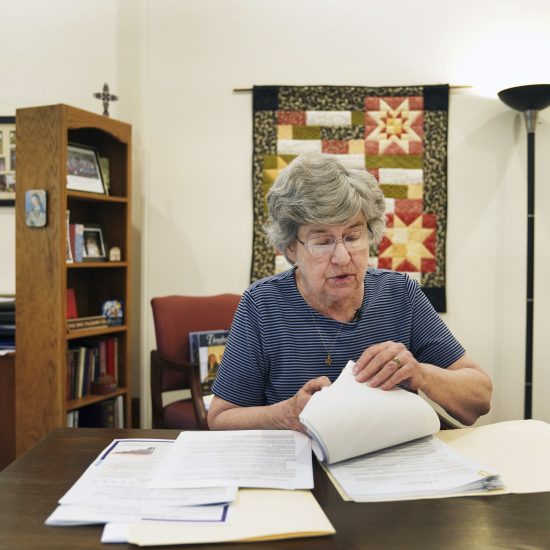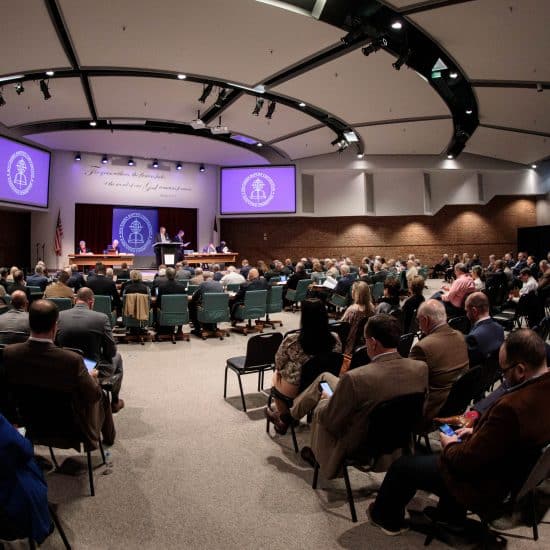FORT WORTH—An organization of retired faculty and staff from Southwestern Baptist Theological Seminary has asked the school’s trustees to reconsider a decision to discontinue providing health insurance coverage at no cost to retirees.
But in a phone interview, Southwestern Seminary President Paige Patterson said: “The matter will not be revisited by the trustees. They were provided thorough information to begin with, and they knew for some time in advance this was being considered.”
The announced termination of medical insurance benefits effective Aug. 1 was “completely unexpected and will create financial burdens for all,” according to a June 7 letter to trustees from the Seniors of Southwestern retiree group.
The names of more than 60 retired seminary employees, along with many of their spouses, were affixed to the letter. However, Wynona Elder of North Richland Hills, immediate past chair of the organization, acknowledged the names of one couple inadvertently were included on the list without their consent, and she recommended they write Patterson to express their disagreement with the letter.
Patterson insisted the seminary first notified retirees seven years ago to let them know about the possible loss of the benefit, but administrators managed to delay the action until economic factors forced the issue this year. Southwestern Seminary had remained one of the few—if not the only—Baptist seminary or institution still providing no-cost insurance to all its retirees, he added.
“This is a decision that affects us all, not just those who are retired at the present time,” Patterson said. “It affects everybody presently on the faculty as well.”
The retiree group insisted they learned they would lose the no-cost insurance when they received an April 27 letter from Patterson saying the benefit would be discontinued because of steadily rising costs.
“With these increasing costs, a tremendous burden continues to be placed on Southwestern Seminary,” Patterson wrote. “We now have to consider and weigh this increasing burden in light of the furtherance of the ministries of Southwestern Seminary.”
The seminary carries a $20.1 million liability that is expected to exceed $21.6 million in the current fiscal year, and current out-of-pocket expenses for seminary health benefits are projected to top $3.3 million in the next fiscal year, he stated.
The seminary would continue to offer a group plan to current and future retirees, but the premium costs would have to be borne by the insured individuals, not the seminary, Patterson announced.
“Never did I dream that I would have to make a decision that causes me such personal agony,” he wrote. “Please know that this decision was not made lightly, and we pray for your understanding of our decision and for your wisdom in the decisions you have to make. Southwestern is one of the few schools still attempting to do this ministry for our retirees, and now a change must be made.”
One week after they received the letter from Patterson, retirees received a letter from Steven Goodspeed, director of human resources and internal counsel at the seminary, summarizing the options available for supplemental Medicare coverage through GuideStone Financial Resources of the Southern Baptist Convention. Retirees were given a July 1 deadline for selecting a plan.
At a June 3 meeting in Fort Worth, retirees approved a letter to trustees asking the board to reconsider the action.
“We, as retirees, recognize that Southwestern is experiencing financial difficulties. This is not the first time this has happened,” the letter said. “We know the retiree supplemental insurance is a cost consideration during this financial crisis, but also feel that this matter could have been handled much more appropriately.”
The letter expressed appreciation to the seminary for providing the insurance benefit to retirees many years and acknowledged the expense it has added to the school’s budget.
However, the retirees also pointed out faculty and staff for generations served at the seminary out of a sense of calling, often giving up larger salaries they could have received elsewhere.
“The faculty and staff felt even though their salaries were not large, Southwestern would help them as promised as they got older,” the letter stated. “We recognize things change, but the care and commitment of an institution for its retirees should not change no matter what other institutions do.
“The decision to totally withdraw the insurance was completely unexpected and will create financial burdens for all, some more serious than others. We had been promised that Southwestern would continue this long history of caring for its retirees, while recognizing that the amounts might change through time. This is demonstrated in the way the faculty and staff employee manuals were worded.”
Patterson, however, insisted policy handbooks specify the benefit is offered “as long as funds are available,” and that no longer was the case.
Requiring retirees to assume the cost of premiums would add $5,256 annually to couples on fixed incomes, the letter stated. Considering the discontinuation of a wellness program that helped cover deductible costs, the group estimated single individuals could be liable for an additional $7,871 in medical and drug expenses, with a cost to couples of $15,742.
“Where are we going to get this money?” the retirees asked in their letter, noting a freeze in Social Security until 2011 and losses sustained in the stock market.
“As an example of the difficulty of finding the money to pay the premiums, consider this: If a couple could earn 5 percent annually on a secure investment, it would take above $100,000 of additional corpus to make just enough to pay the annual insurance premiums. Most of us do not have that kind of additional money to invest.”
The letter from the retiree group asked the trustees to request their executive committee table the action until its next meeting, at which point it could be reconsidered. The letter also asked for a response prior to July 1.
“We are asking you trustees to reconsider this entire action at your upcoming meeting,” the letter stated. “We have reason to believe that this decision was made in April without consideration of all the facts. This was based on the fact that there was very little talk with any of us retirees and no discussion with all of us prior to receiving the letter from President Patterson. You can imagine our surprise.”
Patterson insisted vice presidents from the seminary went personally to several retirees whom they believed would have difficulty dealing with the loss of the benefit to discuss it with them.
He also noted the seminary maintains a fund from which retirees—and others related to the seminary—who are “in dire need” can request assistance.
Administration and trustees maintained the no-cost insurance benefit for retirees as long as possible, but the seminary finally had to discontinue it in order to fulfill its primary task of providing theological education to students at a relatively low cost, he said.





